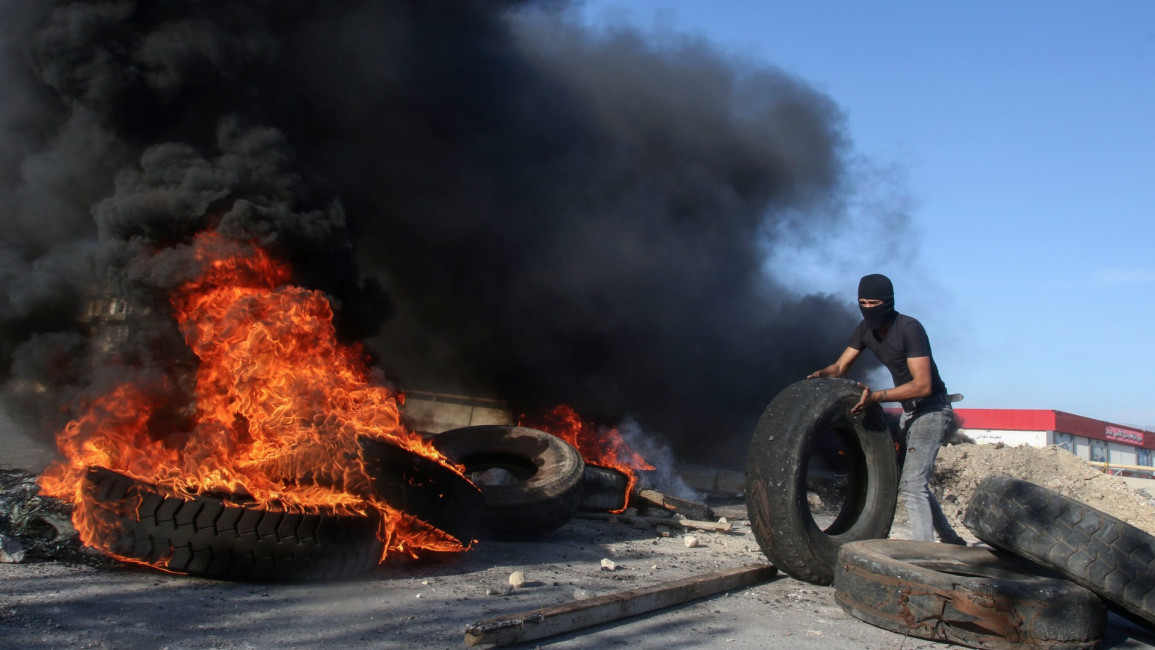Lebanon to inject dollars as currency plunge revives protests
An economic downturn since last autumn has seen widespread layoffs and swingeing pay cuts that mean 45 percent of the population is now in poverty.
After a crisis meeting on Friday, President Michel Aoun announced that the central bank will from Monday begin to execute measures including "feeding dollars into the market", in a bid to bolster the sagging currency.
Lebanese media reported that the exchange rate had touched 6,000 pounds per dollar on the black market at one stage on Friday, compared to the official peg of 1,507 in place since 1997.
The worst economic turmoil since the country's 1975-1990 civil war has sparked an unprecedented months-long street movement against a political class deemed corrupt and incompetent.
Protesters had taken to the streets after sundown on Thursday, setting tyres on fire and blocking roads including in the capital Beirut.
Demonstrators rallied against a government that has been unable to arrest the economic decline, as well as against the governor of the central bank, Riad Salame.
Parliament Speaker Nabih Berri, who attended the meeting with the president alongside Prime Minister Hassan Diab, said the government's measures aimed to bring the exchange rate to stronger than 4,000 pounds to the dollar.
The black market rate had appreciated to below 4,500 on Friday evening after the president's announcement, two dealers said. After nightfall, dozens protested outside the central bank in Beirut.
'Game over'
Tensions have grown recently between the government, which is backed by Shia movement Hezbollah, and the central bank's governor.
Twitter Post
|
Experts say the cabinet would like to see Salame removed from the position he has held since 1993.
Protesters accuse him of having encouraged state borrowing over the decades that they say benefited only the banking and political elite.
Anger against banks has risen in recent months, after they banned all transfers abroad and gradually restricted dollar withdrawals, forcing those in need to buy the greenback at unattractive rates on the black market.
"Several currents taking part in the protests want to topple the central bank governor and hold him accountable for the financial" crisis, among them Hezbollah, Lebanese American University professor Imad Salamey told AFP.
Hezbollah supporters joined the demonstrations late Thursday, despite usually being against the protest movement that begin in October.
"Riad Salame, game over," read the front page of the Al-Akhbar newspaper close to the Shia movement on Friday morning.
The previous government stepped down under street pressure just weeks into the demonstrations that began in October, and Diab's cabinet began work earlier this year.
Analyst Hilal Khashan said citizens had recently returned to the streets because they feel nothing has changed.
'Middle class obliterated'
"The economic situation has further deteriorated... The middle class has been obliterated,"said Khashan, a professor at the American University of Beirut.
"But I don't think the government will collapse," he added.
The central bank late Thursday hit out at "baseless" information on social media of "exchange rates at levels far from reality, which mislead citizens".
Lebanon - one of the most indebted countries in the world with a sovereign debt of more than 170 percent of its GDP - went into default in March.
It started talks with the International Monetary Fund last month in a bid to unlock billions of dollars in financial aid. Dialogue is ongoing.
Unemployment has soared to 35 percent nationwide, with Lebanese living in the impoverished northern port city of Tripoli particularly badly affected.
Traders there called for a "general strike" on Friday over "heavy losses" and their "plummeting buying power".
The country enforced a lockdown in mid-March to stem the spread of the novel coronavirus, dealing a further blow to businesses.
Lebanon has recorded some of the pandemic's best declared metrics in the Middle East, with just 1,422 cases of Covid-19, including 31 deaths.
Follow us on Facebook, Twitter and Instagram to stay connected



